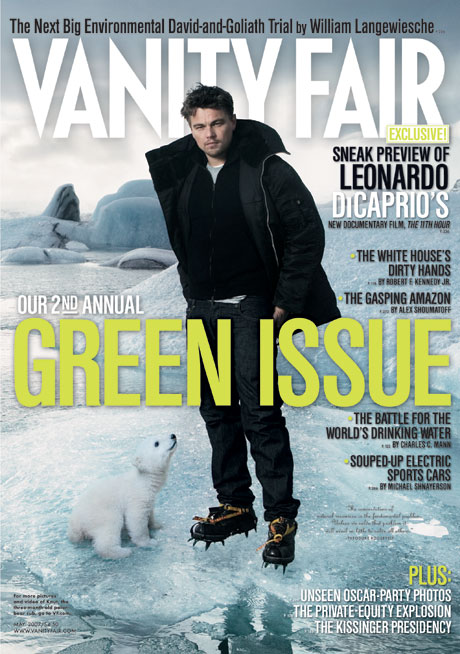
“There will be no carbon tax under the government I lead”.
Congratulations Julia!
That epic broken promise is looking good now, isn’t it.
Just ask our trans-Tasman neighbours:
Carbon credits pricing crashes and burns
A crash in carbon credit prices means the government has no option but to ban or drastically restrict the use of imported carbon credits of dubious quality, or the emissions trading scheme (ETS) could become a national embarrassment.
The price of New Zealand units (NZUs) has crashed from $22 in May to about $11* last week, stifling interest in developing carbon offsetting initiatives here, according to carbon market participants.
The price crash has been so steep that by one calculation, if the price trend continued for another 100 days, the value of NZU credits would be zero.
The reasons for the crash appear to be the unfettered ability of New Zealand emitters to import credits of dubious quality from overseas, coupled with the recent dumping of international credits by cash-strapped European industrial and utilities companies selling down their stockpiles of carbon to realise cash as the debt crisis worsens, participants in the fledgling carbon trading market say.
Hmmmm. That last bit sounds strangely familiar:
ASX’ announcement came two days after Australia passed a law that will require almost 500 of the country’s largest emitters to pay for their pollution for the first time. The law allows firms to offset as much as half of their Australian discharge by purchasing credits awarded for projects that limit carbon releases abroad.
Lemmings. Cliff. Gravity. Bitch.
In more good news for Julia (and partners in crime Bob, Andrew, Tony and Rob):
Carbon credits may be buried in Durban; India, China to lose
The much-heralded carbon trading system may be headed for a dead end, if discussions underway over the last few days at the United Nations-organised global conference on climate change are any indication. This will have a major impact on India and China, the leaders in such trading.
“The carbon markets will crash if Durban fails to send a strong signal that the next round of Kyoto Protocol negotiations are on track,” says Remi Gruet, senior regulatory affairs advisor on climate and environment with the European Wind Energy Association, an industry body.
Doubtless Remi Gruet is “talking his own book”, being a wind energy lobbyist and all.
But his underlying point remains valid.
Because it appears that China and India are not exactly proving helpful in forging a new post-Kyoto agreement:
The world’s three biggest polluters joined in opposing a European Union proposal for talks aimed at drawing up a new climate treaty, dimming the chances of extending the Kyoto Protocol limiting greenhouse gases…
India, along with the U.S. and China are united in opposing the EU’s timeline to a new deal. The 27-nation bloc that’s done the most to limit carbon dioxide fumes since Kyoto was signed in 1997, said it wouldn’t agree to more limits unless a treaty is signed by 2015 and in force by 2020.
The opposing positions may torpedo the chance of a deal on Dec. 9 when two weeks of talks in Durban finish. The EU has called its “road map” proposal a “red line” issue.
Although this report in the Financial Times suggests otherwise:
China and Brazil have warned that one of the world’s biggest carbon markets will be under threat if wealthy countries reject their demands for a new phase of the Kyoto protocol.
It is “inconceivable” that the $20bn UN-backed carbon offset market can continue unless countries agree to a second round of pledges under the Kyoto climate treaty after the first round expires in 12 months, China’s chief negotiator told the FT.
Confused by all the international politicking?
Not to worry.
Barnabyisright.com readers know better than to take much notice of all their noise.
They know that the best way to get an insight into the truth of what is really going on, in almost every life situation, is to simply remember the Golden Rule.
Follow The Money:
Investment banks are cutting traders and analysts in climate-related businesses as a slump in shares and carbon emission permits coincides with a deadlock in international climate talks.
JPMorgan Chase & Co. Managing Director for Environmental Markets Odin Knudsen left his post in New York by mutual accord after his team was shrunk, while UBS Securities LLC fired Vice Chairman Jon Anda and his Climate Policy Group co-workers, Anda and Knudsen said in interviews. Ben Lynch left his London job as an alternative-energy analyst for Commerzbank AG and it was taken over by a utilities analyst, company spokeswoman Claire Tappenden said. The departures took place since September.
The biggest banks, trying to recover from trading losses and a clampdown on investing their own money, are clipping resources from emissions-related businesses as United Nations talks have failed for years to extend Kyoto Protocol greenhouse- gas curbs beyond their expiration in 2012. The International Emissions Trading Association, the main carbon-market trade group, has seen its membership slide about 6 per cent this year.
“People are leaving the industry because they’ve been fired or because they see no prospects,” said Emmanuel Fages, head of energy research for Europe at Societe Generale SA in Paris.
And then there’s this, from eFinancialCareers UK:
At least you don’t work in carbon trading
It’s no longer possible to save the world whilst being paid in the style of a financial services professional. Not unless you’re prepared to live with a degree of job insecurity that offsets the advantage of working in an office rather than camping in Finsbury Square.
Three years ago, carbon trading was a vibrant, growing and politically correct business to work in. Today, it’s moribund and politically expedient.
“Carbon trading was very exciting a few years’ ago,” says Mike Brennan chairman of recruitment group Climate Human Capital. “People were very well paid and very well bid, but not any more.”
Last year, Climate Human Capital estimated there were 169 people working in carbon trading in the City of London, 27% of the European total. Today, Brennan says that number is, “significantly lower.”
Carbon trading refugees are emerging from banks and funds. Bloomberg says an MD for environmental markets has left JPMorgan, “by mutual accord,” that UBS has fired a climate vice chairman and his co-workers, and that Commerzbank has reallocated the responsibilities of its alternative-energy analyst to its utilities analyst. Carbon funds like Climate Change Capital, which were the new, new thing, aren’t: CCC made a loss last year, has lost its chief executive, has no current vacancies and has declared an interest in “strategic partnerships” in an effort to raise more capital.
“People are leaving the industry because they’ve been fired or because they see no prospects,” said Emmanuel Fages, head of energy research for Europe at Societe Generale in Paris, told Bloomberg. “That is the sad story.”
The sources of the sadness are manifold: the price of carbon has plummeted to €7.9 a metric tonne, down from €17 euros in May; the much hoped for US cap and trade carbon scheme has failed to materialize, and the EU carbon trading scheme has been blighted by an oversupply of credits. One trader who’s been acting as an advisor on the carbon market says things are unlikely to improve soon. “Carbon is all about vanity. Corporates and governments want to be carbon neutral until they have to start laying people off or facing rioting in the streets. At that point, they don’t give a damn.”
What will happen to the carbon traders who thought they were using capitalism to save the world? “It’s a good job Starbucks are planning to hire so many people in London,” says one carbon headhunter, only semi-humorously.
However, Brennan insists there are some roles still somewhere. “We’re working with some niche brokerages focused on Central and Eastern Europe. They see opportunities there and are selectively adding carbon professionals to their team,” he promises. Unfortunately, applicants may exceed opportunities.
See Julia?
This is what happens when you have your Pinocchio nose jammed so far up Senator Brown’s realm-where-the-sun-don’t-shine.
You can’t see what is really going on out here in the real world.
What’s that old proverb again?
Pride goes before destruction, and a haughty spirit before a fall.

* And just days after that article, this:
New Zealand carbon price collapses below $10 a tonne
The price of a tonne of emitted carbon has fallen below $10 for the first time today, with Westpac quoting a buy price for a New Zealand Unit falling to $9.90 as European carbon prices collapse.
The developments coincide with New Zealand and Australian climate change ministers, meeting on the sidelines of the global climate change summit in Durban, South Africa, announcing terms of reference for efforts to align the two countries’ emissions trading schemes…
“Westpac has regular buy and sell prices, but no one knows whether they contract at those prices, we don’t know,” said one broker who declined to be named. “We’ve hit dire days in carbon pricing.”
Tags: carbon trading, durban, EEX, ets, JPMorgan, julia gillard, NZ, UBS




Comments